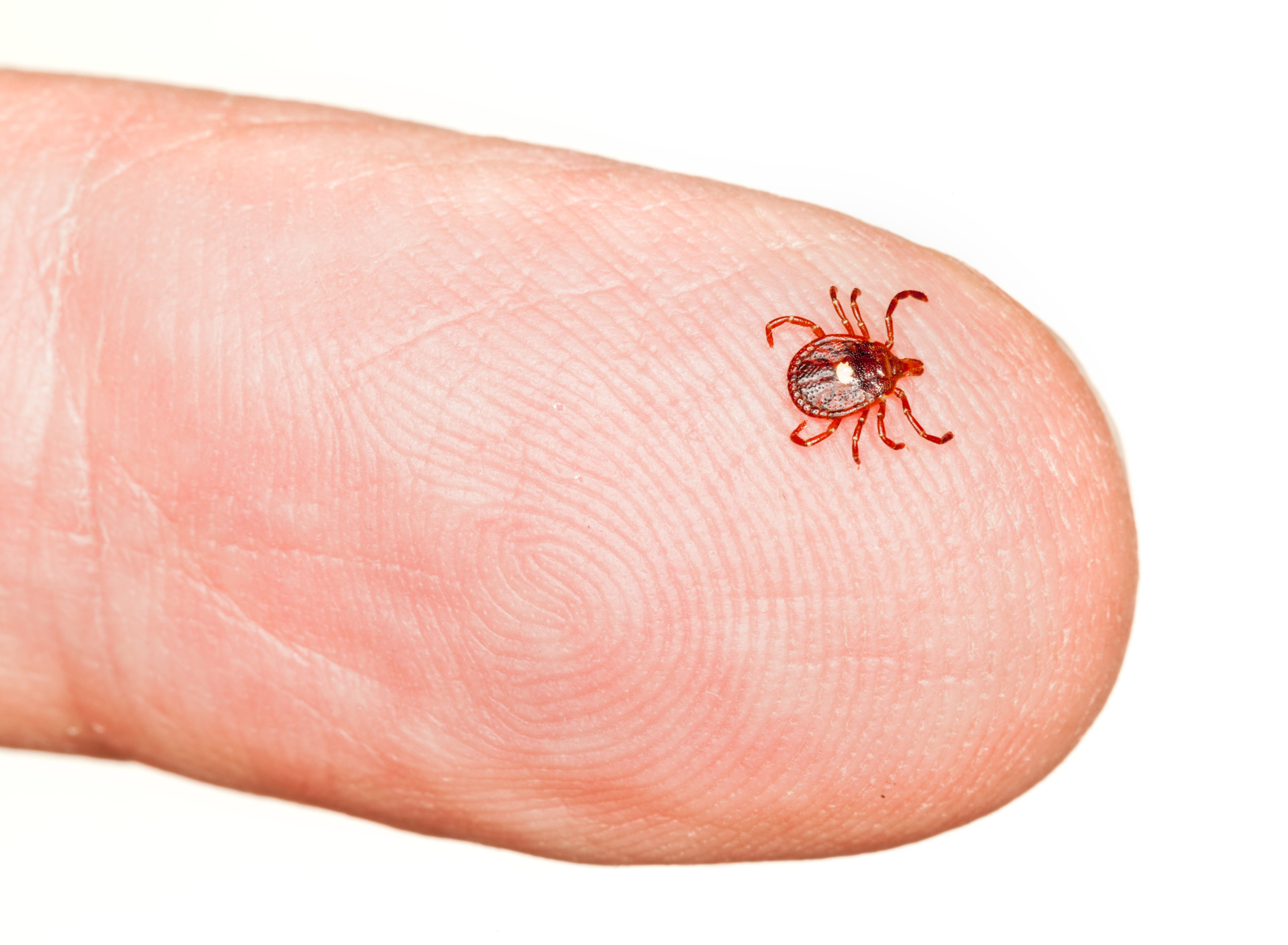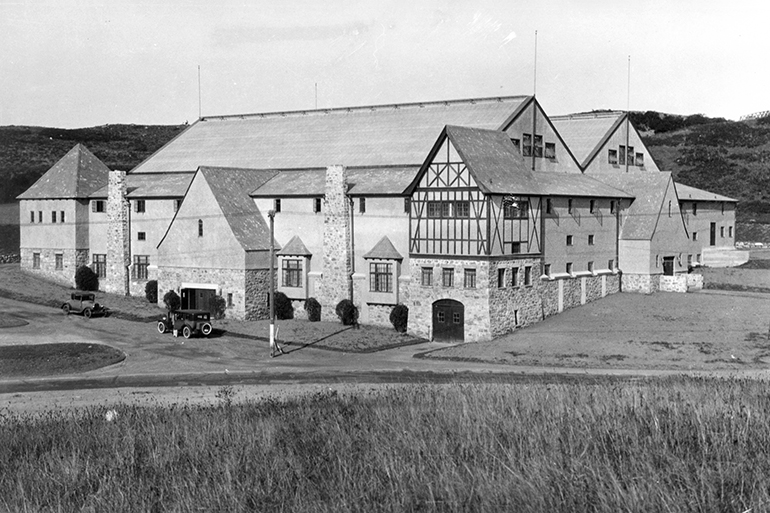Tick Expert Brian Kelly on Keeping Your Family Safe This Fall

As the East End closes the chapter on a particularly tick-filled summer, we’re due for a check-in with Brian Kelly, our resident tick control expert and the owner of East End Tick & Mosquito Control and Twin Forks Pest Control, to learn how we can make the fall months as pest-free as possible.

Tick Talk with Brian Kelly
How did the East End fare with ticks this summer?
This season has been a pretty rough year with the ticks. … People were finding them whether they went to the beach, the farmers market, the local nursery or, obviously, their own backyard. The lone star tick, in particular, seemed to be the culprit this year. We found many more lone star ticks than deer ticks, but the adult deer ticks are going to be coming out very soon, so we’ll see how that fares in the fall.
Right now, it’s the lone star tick larvae that are emerging or hatching from their egg casings. These little ticks are sometimes mistaken for chiggers, but they’re really lone star tick larvae. … When you get them on your leg, you have a whole patch of these teeny, microscopic ticks that bite you and leave lots of little red itchy bumps, and some people are coming down with an alpha-gal meat allergy. …
There are meat byproducts in so many different things — your vitamins and lipstick, for instance. There are meat byproducts in just about everything we eat across the gamut. You’d be surprised how many things have meat byproducts in them and will affect people who might have this meat allergy.
What methods do you recommend when dealing with ticks on your property this fall?
The best way to control the ticks is spraying for ticks monthly, April through November. It’s probably the most effective way to reduce the tick population on your property, but other measures should be taken, such as keeping your yard clean and free of leaves. …
(Keep in mind that) ticks are active year-round out here, especially now that we’ve been having more mild winters over the last few years. Whenever the temperature is above freezing, the ticks will be active.
What are some best practices to avoid tick bites while spending time outdoors?
Use a tick repellent when you’re outside; spray your shoes, socks and pants. Ticks always work their way from the ground up. They don’t jump out of the trees or fly or hop. If you find one behind your ear, it crawled up your whole body and decided that’s where it was going to feed. …
Know your surroundings. If the soccer ball goes into the woods, sending the kids running in after it probably isn’t a good idea unless somebody puts on some rubber boots or checks themselves after. We don’t tend to do that stuff. … And not just the woods, the beach grass … the long grass on the side of the road … People tend to associate ticks with the woods themselves, but with lone star ticks, one of the reasons we’re finding so many of them is because they’re not the same as the deer tick that just waits for you along the edge of the woods. The lone star tick will actually come looking for you. … We find them in places where you usually don’t find deer ticks: on your patio furniture, crawling through the cracks of your deck, things like that. …
Whenever you’re outside, you really should, at the end of the day, just give yourself a good once-over tick check. And check the kids. It’s good practice to do that. We’re all going to miss a few days here and there, of course, but if we know that the kids are playing over at a friend’s house and have no idea what they’re doing over there, you’ve got to check them for ticks when they come home. We also like to teach kids to advocate for themselves and to teach kids to check themselves for ticks.
What is the safest ways to remove a tick from yourself, your child and your pet, and what steps should be taken after removal?
When removing a tick, it really should be done with a sharp pair of tweezers. You would grab the tick as close to the skin as possible, slowly pull and it should pop right out. Sometimes the head will get stuck in there, and that’s OK; your body will get rid of that. … There’s this old wives’ tale, even when I was a kid, I remember my Mom would say to put Vaseline on the tick, and it’ll back its way out. Or touch the tick with a lit match.
All those things they find now are the absolute wrong thing to do when it comes to tick bites, because the ticks will regurgitate some of those spirochetes and any of those organisms that are in their body into your system when you do that. …
But you don’t want to wait to see a doctor to get it removed. You want to take it out yourself, if possible, and save the tick. It’s important to know what tick you’ve been bitten by. This way, the doctor can treat you the right way. If you were bitten by a lone star tick, it’s a different treatment than if it’s a deer tick. Knowing what tick you were bitten by is really important.
I recommend having your bloodwork done at the end of the summer every year. … With generic blood work, there are a lot of different things they can test for. Alpha-gal would be one, and babesiosis, ehrlichiosis, Lyme disease, all these different (tick-borne) diseases that they test with the same blood sample, but you have to say, “Hey, I want all the tick tests, not just for Lyme disease.” You can get a lot of different things from one tick bite, unfortunately.
I don’t want to scare you. Not every tick is infected. Not everybody who gets bitten by a tick gets sick. That’s just not the case. But taking those precautions by removing ticks the right way and having the bite treated is important so you don’t become one of those statistics.
To learn more about Brian Kelly’s methods of dealing with ticks and other pests, check out East End Tick & Mosquito Control at tickcontrol.com and also Twin Forks Pest Control at twinforkspestcontrol.com, or call one of the three East End offices at 631-287-9700 (Southampton), 631-324-9700 (East Hampton) and 631-765-9700 (Southold).
If you or your child needs to speak to a specialist about tick-related health concerns, Kelly recommends scheduling an appointment at Stony Brook Southampton Hospital’s Regional Tick-Borne Disease Center, which he recently helped open at the Hampton Bays Atrium. To schedule an appointment, call 631-725-2112 for an adult, 631-444-5437 for a child, or access the help line at 631-726-8425. For more information, visit eastendtickresource.org.









